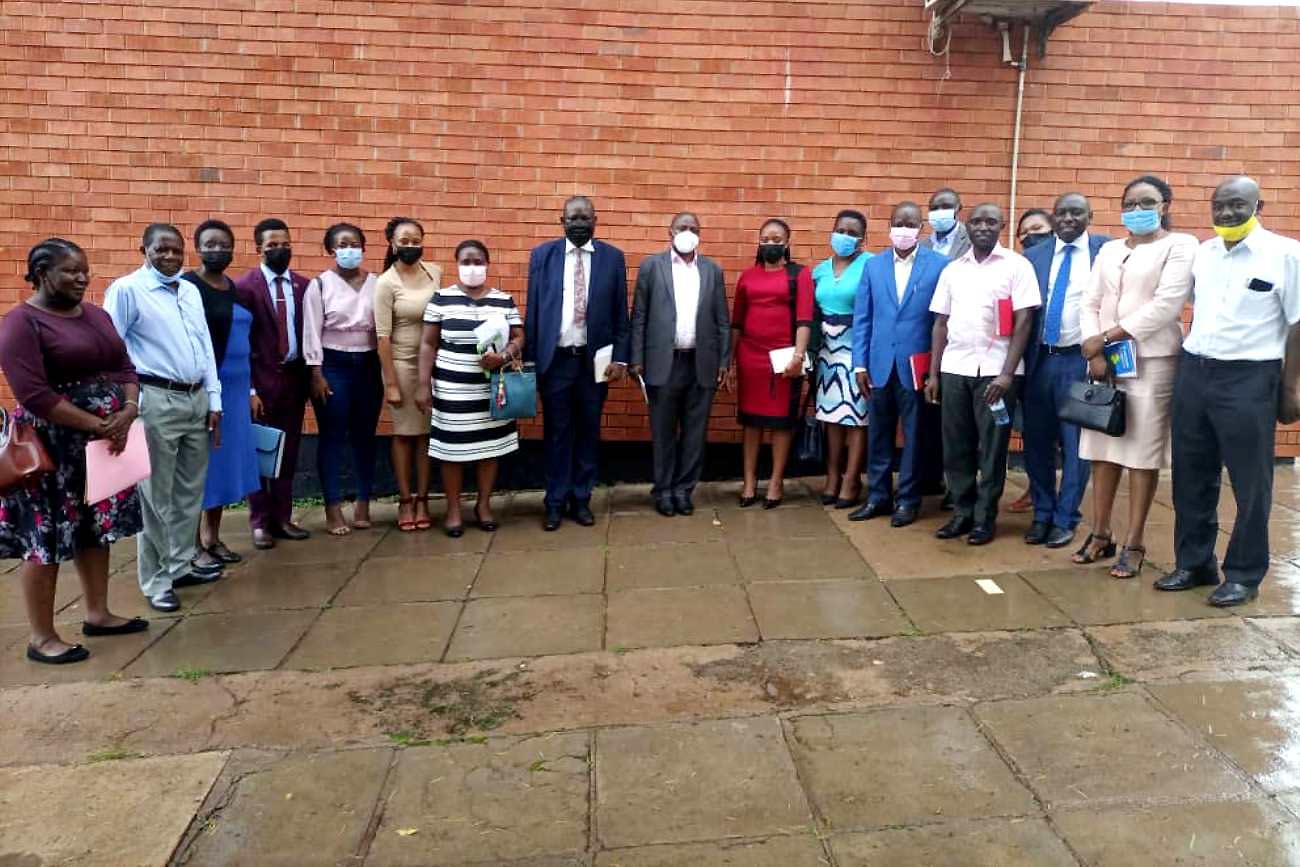In a bid to keep abreast with the changing trends in the business sector, staff of the School of Business, College of Business and Management Sciences (CoBAMS), led by the Dean Dr. Akileng Godfrey on November 3, 2021 spent the day interacting with players in the private sector. The staff undertook the capacity building as part of their continuous professional development.
The staff heard from Mr. Kakande Robert, the MD of Finca Uganda who shared an analysis of the performance of the financial sector in Uganda. The participants learnt that despite the Covid–19 pandemic, the banks saw an increase in cash deposits by 20% and a decline in the loan portfolios by 14%. This was attributed to the decline in trade, owing to the travel restrictions. This was also compounded by the fact that Ugandans are generally a risk averse population. Many people, about 49%, borrow from informal lenders such as friends, family and investment groups. It was noted that only 11% of the population keep their money in banks. About 43% keep money in saving groups, 27% keep it at home while 23% keep it on mobile phones.

This, Mr. Kakande said calls for a national financial inclusion strategy. Some of the emerging and contemporary issues in the financial sector include digitization. The world is growing exponentially, which calls for new ways of doing things. The development of the internet, artificial Intelligence, Internet of things has forced banks to digitize all their services. This Mr. Kakande said, has helped improve customer experiences and reduce the number of people transacting in the banking hall. Today, Uganda has 28 million mobile phone users, 12.1 million internet users and 3.6 million social media users. This means the financial sector also has got to evolve and meet the demands of these customers. This has seen the development of online banking, bank to phone transactions, which have greatly improved the financial sector.
The participants learnt that Bank of Uganda, had issued new regulations for commercial banks, in an effort to secure depositors money. This, Mr. Kakande called the BASEI 11 Capital Accord Framework. Commercial banks are now required to have operating capital of Shs150 billion up from Shs25 billion, while tier 4 institutions such microfinance institutions are required to have capital of Shs5billion up from Shs500 million. BOU has also set out to regulate the Mobile Money business which is being run by the telecommunication companies.

Another emerging issue is Bancassurance. This is a relationship between a bank and an insurance company that is aimed at offering insurance products or insurance benefits to the bank’s customers. In this partnership, bank staff and tellers become the point of sale and point of contact for the customer. Agency banking is another contemporary trend that the financial institutions have adopted. This has also been done in an effort to extend the bank to the clients.
On the issue of high interest rates charged by the banks, Mr. Kakande said, this is because the credit risk among the population is high. The emergence of Infrastructure bonds is something the financial sector players also have to look at in the future.

The staff also got an opportunity to interact with Mrs. Immaculate Ngulumi, the Marketing Manager of Centenary Bank. She shared how the service industry has been able to attract and retain clients. Mrs. Ngulumi said that because service is not a tangible product, the service providers have to appeal to the emotions of people. This, she said calls for investment in 3 Ps (People, processes and physical evidence). The people/staff, she said, have to be well trained, motivated and treated well, so that they can pass on this positivity to the clients. The processes have to be quick and seamless while the ambiance must be good. She shared with the team, the 4 aspects of managing services
- Managing customer relationships
- Managing service quality
- Managing service productivity
- Managing staff and positioning services
Mrs. Ngulumi concluded by saying that in the service industry, the customer does not buy a product, they buy the experience, so give them the best experience.
Other topics discussed included the International Financial Reporting Standards and the role of the private sector in public sector procurement.
The Dean School of Business, Dr. Godfrey Akileng thanked the participants for attending and the facilitators for making time to share with his team.

